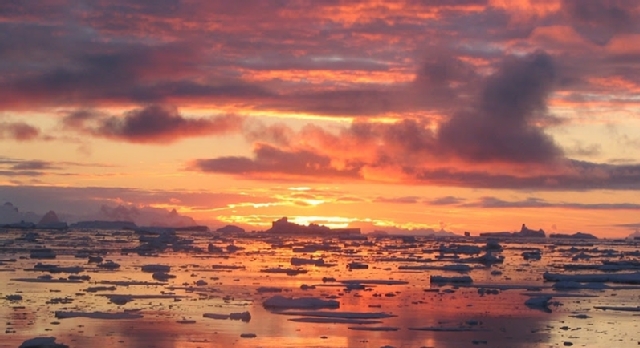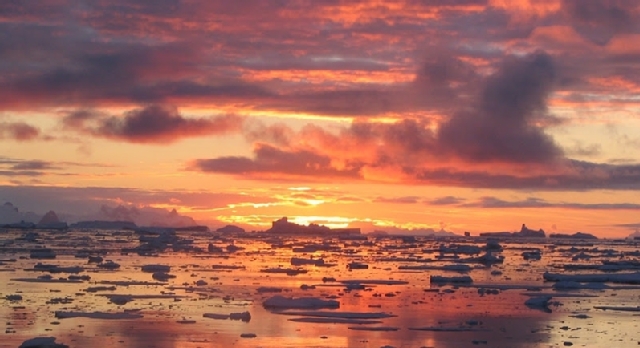Page 53 • (806 results in 0.039 seconds)
-

Spring is almost here. We just set our clocks forward an hour and throughout this semester students will have plenty of master classes to anticipate with an incredible variety of guest artists from disciplines. Keep reading to hear about the talented musicians, educators, and composers!…
resources, and how to choose literature for elementary choirs. Nicole Laborte, who spoke with our students last semester, will return to discuss teaching strategies and tools for teaching virtually. Guy Kovacs, principal at Kalles Junior High School in Puyallup, will speak on how to find teaching jobs and ace an interview. He has been recognized as Middle School Principal of the Year and is loved by his students and staff. PLU alumna Helene Beck will present on teaching elementary general music
-

Antarctic sunset. Photo taken by Samantha Dillon. Resource 2012 Wang Symposium: Our Thirsty Planet Wang Symposium: Activist fights to preserve the precious resource of water By Barbara Clements Maude Barlow didn’t start out interested in water. Nothing of the sort, she recalled recently from her…
English literature. Since that epiphany, Barlow has become a leading voice on water conservation and the view that it is a resource that should be conserved and administered as a public, not private resource. Maude Barlow She has authored 16 books, including “The Politics of Water”, “Blue Gold” and her most recent book “Blue Covenant” (2007, The New Press). Barlow is the recipient of 11 honorary doctorates as well as many awards, including the 2005 Right Livelihood Award (known as the “Alternative
-

“An Antarctic Sunset” taken by PLU student Samantha Dillion in 2006 during J-Term study away in Antarctica. Wang Symposium 2012: Water warrior fights to save our most precious resource By Barbara Clements Maude Barlow didn’t start out interested in water. Nothing of the sort, she…
fresh eyes,” said Barlow, who has a degree in English literature. Maude Barlow Since that epiphany, Barlow has become a leading voice on water conservation and the view that it is a resource that should be conserved and administered as a public, not private, resource. She has authored 16 books, including “The Politics of Water”, “Blue Gold” and her most recent book “Blue Covenant” (2007, The New Press). Barlow is the recipient of 11 honorary doctorates as well as many awards, including the 2005
-

Washington, D.C. (March 20, 2017)- When Scott Foss ’91 enrolled at Pacific Lutheran University, he dreamed of becoming a paleontologist and pursuing a career outdoors conducting research. Now, he’s a senior paleontologist at the Department of the Interior. Foss serves as a policy adviser and…
at PLU and have stayed in contact with the faculty throughout my career. I knew I wanted to become a paleontologist by the time I arrived on campus. I’ve always been interested in a lot of different things, and I was able to pursue them at PLU, knowing that I would eventually have to set them aside to focus on paleontology. I took a lot of classes to do with art, writing and literature coursework. I also played tuba in the wind ensemble and the crazy pep band PLU had back then, known as “commando
-
Preparing for law school can be a complex process without the right help. The resources within these pages can help you prepare for law school, no matter what your year, and set yourself up to have
force them to tackle difficult material. Law school will push you intellectually, so you will benefit from being in such environments as often as possible. Law school requires intensive writing, reading, and critical thinking, so students should seek writing intensive courses, courses that require extensive reading of material that is difficult to navigate (such as literature, philosophy, or law), and classes that push you to critically evaluate your beliefs and assumptions. The more classes of
-
For some students, studying sociology at PLU will only be part of the academic journey. Many options exist for students to pursue graduate studies related to sociology.
project. The thesis project requires students to ask a unique and interesting research question, familiarize themselves with the literature, gather data to answer that question, analyze the data, and write themselves an academic paper (30-50 pages in length). Earning a M.A. often qualifies individuals to work in state and local governments, for non-profit organizations, and in for-profit professional environments. Many sociology undergraduates elect to earn M.A.s in sociology; however, sociology
-
Spring, 2022 This issue marks an important transition for the Division of Humanities. As of this summer, the Humanities programs —English, Languages & Literatures, the Language Resource Center, the Master of Fine Arts in Creative Writing, the Parkland Literacy Center, Philosophy, and Religion— will merge…
humanities can and should learn from the living presence and complex reality of non-human animals. And the “intellectual and aesthetic transformations” that our teaching makes possible are reflected in the pedagogical insights of professors Jen Jenkins and Kirsten Christensen, who explain their interdisciplinary approach to teaching the literature and cultural history of the German-speaking world. The Energizing Challenge of Diversity In 1993, Dean Paul Menzel noted the division’s concerted efforts to
-
For either the Bachelor of Arts or Bachelor of Science degree, the student must take our introductory core sequence (BIOL 225 and 226) and a semester of genetics (BIOL 330).
), genetic engineering, bio-prospecting, and socio-economic issues surrounding botanical commodities. Prerequisite: BIOL 226. (4) BIOL 358 : Plant Physiology A study of how plants obtain and utilize nutrients, react to environmental factors, and adapt to stress. Focuses on mechanisms at the molecular, cellular, and organismal levels. Explores connections to agriculture and ecology. Relies significantly on primary literature. Includes laboratory. Prerequisite: BIOL 226. (4) BIOL 359 : Biology of
-
Learning Communities are for all PLU students. At PLU, every residential student (including first-year, new transfer, returning, and upper division) is part of an LC, by year at PLU and/or by theme.
college (first-generation students whose parents did not graduate from a four-year, degree granting institution in the U.S.) with support to connect them to resources for success in and out of the classroom. Students of Color For students who identify as People of Color (or not White) who are interested in exploring their racial and ethnic social identities and cultures. Environmental & Social Justice For students who are interested in exploring the intersection of social justice and environmental
-
Originally Published 1999 “The Artist, the thinker, the hero, the saint —who are they, finally, but the finite self radicalized and intensified? . . . The difference between [them] and the rest of us . . . is a willingness to undergo the journey of…
the kind of knowing that cannot be unknown. For our students this is a process of reconstituting themselves as human beings, a process of disintegration and reintegration, for some welcome, for others not. For all, however, it is a process that usually involves their experiencing a sense of tension and even betrayal of family, peer group, social class, ethnic community, religious denomination, or political ideology. Whether and how students negotiate this process depends on many things: among them
Do you have any feedback for us? If so, feel free to use our Feedback Form.


